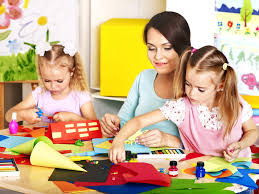
DIPLOMA IN MONTESSORI AND CHILD EDUCATION (2 YEAR)
🎓 Diploma in Montessori and Child Education (2-Year Program)
📘 Syllabus Overview
Year 1: Foundation and Core Principles
- Introduction to Montessori Education
- History and philosophy of Montessori education
- Key principles and methods
- Role of the teacher in a Montessori classroom
- Child Development and Psychology
- Stages of child development: physical, cognitive, emotional, and social
- Understanding individual differences and learning styles
- Observational techniques and documentation
- Montessori Materials and Classroom Setup
- Overview of Montessori materials and their purpose
- Organizing and maintaining a Montessori classroom
- Preparing learning environments conducive to independent learning
- Language Development and Literacy
- Language acquisition and development in early childhood
- Montessori approach to reading and writing
- Practical activities to enhance language skills
- Mathematics Education
- Introduction to Montessori math materials
- Concepts of numbers, operations, and mathematical reasoning
- Hands-on activities to develop mathematical understanding
- Practical Life Skills
- Importance of practical life activities in Montessori education
- Exercises to develop coordination, concentration, and independence
- Implementing practical life activities in the classroom
- Health, Nutrition, and Safety
- Promoting health and hygiene in early childhood settings
- Nutritional needs of young children
- Creating a safe and healthy learning environment
- Observation and Assessment Techniques
- Methods of observing children's behavior and development
- Documenting and analyzing observations
- Using assessments to inform teaching practices
Year 2: Advanced Practices and Professional Development
- Advanced Montessori Methodologies
- In-depth study of Montessori principles and practices
- Adapting the Montessori method to diverse learning needs
- Integrating Montessori philosophy into daily routines
- Classroom Management and Discipline
- Strategies for effective classroom management
- Promoting positive behavior and conflict resolution
- Creating a respectful and inclusive classroom environment
- Cultural Studies and Geography
- Introducing children to cultural awareness and global perspectives
- Montessori approach to teaching geography and cultural studies
- Activities to foster appreciation for diversity
- Art, Music, and Movement
- Incorporating creative arts into the Montessori curriculum
- Activities to develop fine and gross motor skills
- Using music and movement to enhance learning experiences
- Parent and Community Engagement
- Building partnerships with parents and caregivers
- Involving the community in the educational process
- Effective communication strategies with families
- Educational Technology in Early Childhood
- Integrating technology into the Montessori classroom
- Using digital tools to support learning
- Evaluating the impact of technology on child development
- Professional Ethics and Responsibilities
- Understanding ethical standards in early childhood education
- Professional conduct and responsibilities of a Montessori educator
- Continuing professional development and lifelong learning
- Capstone Project and Internship
- Designing and implementing a Montessori-based project
- Gaining hands-on experience through internships in Montessori settings
- Reflecting on practice and preparing for future employment

